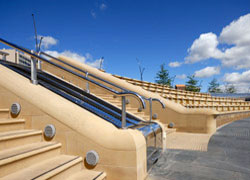-
Services
-
Individuals
Bankruptcy

Bankruptcy is the formal court process by which an insolvent individual’s affairs are dealt with by a Trustee in Bankruptcy. The individuals assets are realised and the proceeds distributed to creditors in a defined order of priority. A bankruptcy order may be applied for by the individual himself or on the petition of a creditor who is owed more than £750.
Upon the making of the Bankruptcy Order the Official Receiver becomes receiver and manager of the bankrupts estate. Where there are significant assets, an Insolvency Practitioner will be appointed Trustee in Bankruptcy either by a meeting of creditors or by the Secretary of State. If there are no significant assets the Official Receiver will act as Trustee.
Consequences of Bankruptcy
Once the bankruptcy order has been made the bankrupt loses any rights to his property and assets, subject to certain exceptions. The exceptions are pension rights, any tools and equipment needed by him for use in his business and his basic domestic possessions such as clothes, bedding and furniture.
The bankrupt will therefore lose the equity in his house although in most cases the Trustee will be keen for the bankrupt (once discharged) or his family to buy back the equity rather than forcing the house to be sold. In any event the Trustee must realise his interest in the bankrupts home within three years from the date of bankruptcy.
A bankrupt is allowed to work and earn a living but may be required to make payments out of his surplus income for a period of up to three years. Should the bankrupt come into any assets during the period of the bankruptcy, such as any inheritances received or lottery winnings, these assets may be claimed by the Trustee.
Bankruptcy Restrictions
An un-discharged bankrupt is subject to certain restrictions:
- He/she may not obtain credit of more than £500 from anyone without first telling them that he/she is an un-discharged bankrupt.
- He/she must not carry on business under a name different from that under which he/she was declared bankrupt without first disclosing the fact that he/she is an un-discharged bankrupt.
- He/she must not act as a company director without the Court’s consent.
- He/she may not hold certain public offices nor act as a trustee of a charity or pension fund.
These restrictions are usually automatically lifted once the bankrupt is discharged. However, in certain circumstances the Official Receiver can apply to Court for a Bankruptcy Restriction Order, or the bankrupt agrees to sign a Bankruptcy Restriction Undertaking, which extends these restrictions for a period of up to 15 years.
Bankruptcy Period
A bankrupt will usually be discharged from bankruptcy automatically after one year, or even sooner if the Official Receiver decides to close his file early. Once discharged, the bankrupt is released from his or her bankruptcy debts and from the restrictions detailed above. However there are certain debts which a bankrupt is not released from such as Court fines, matrimonial debts, certain student loans and gambling debts, and these remain payable.
Once the bankruptcy has been discharged the former bankrupt is able to accumulate assets and earn as much as he or she can without having to account to the Trustee. Not withstanding the fact that the bankrupt is discharged, a Trustee will remain in office until he has dealt with the bankruptcy assets and distributed the proceeds to creditors.